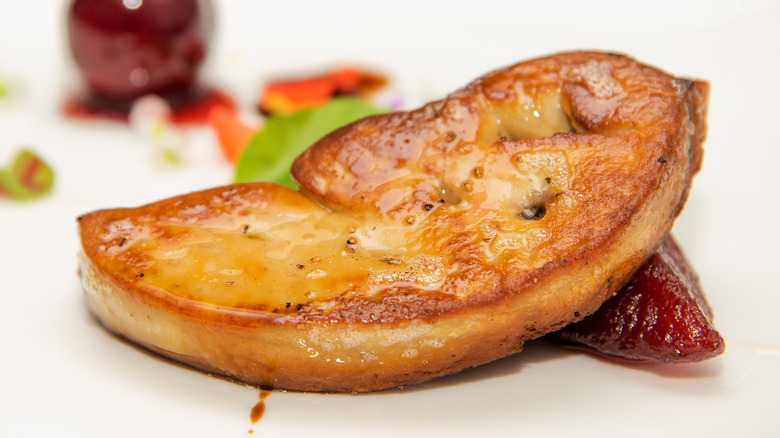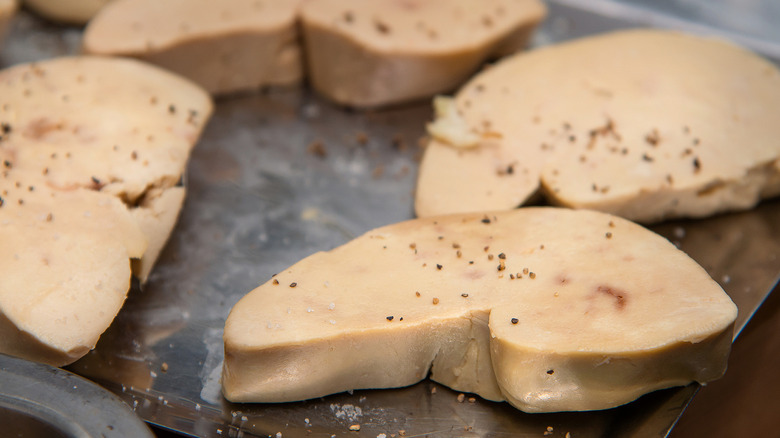Is Foie Gras Banned In California?
For many of us, foie gras is one of those dishes we can only dream of being served within the shiny golden structures of fancy restaurants and hotels and is out of reach of anyone who doesn't own a minimum of three yachts. According to BBC Radio 4, foie gras is one of the priciest foods in the world, up there with the likes of caviar, oysters, and truffles.
Despite its exotic name, foie gras is actually sourced from an everyday animal: duck. Said like "fwah-grah," The Spruce Eats details that the pricey food is enlarged liver taken from a duck or goose. It is smooth, fatty, and buttery, and can be turned into pâté or mousse for serving as an entrée or terrine (layers of meat sometimes combined with vegetables).
There are, however, ethical issues relating to foie gras. Aside from vegetarian and vegan concerns about eating meat, the livers harvested from ducks are purposely enlarged by foie gras producers, notes PETA. Therefore, the truth about foie gras is that it's a controversial item, particularly in California, where lengthy legal debates about controlling it took a long time to be settled.
California has taken action against foie gras production
The deliberate fattening of duck livers is seen as unethical because foie gras producers force-feed the animals so that their livers increase by up to 10 times their original size, according to PETA. The process is called gavage and involves funneling food directly into the stomachs of ducks and geese using a tube placed down their throats. The birds can also be kept in unhygienic conditions.
California is a frontrunner in revolutionizing the foie gras industry. Eating foie gras in California is permitted, but producing it is banned, per The Los Angeles Times. Courthouse News Service clarifies that a foie gras purchase made in California (even online) and brought into the state would be illegal. New York City has also restricted the sale of foie gras, per BBC News.
The California ban and the effect of foie gras production on birds are still debated. An argument published by Serious Eats states that feeding tubes are unlikely to cause ducks discomfort because their throats are strong and elasticated, and they are used to storing larger amounts of fat for migrations, potentially suggesting that strict controls are not needed. For now, though, it appears that restrictions aren't going to stop any time soon, and the world could potentially turn to lab-grown foie gras to appease this problem.

